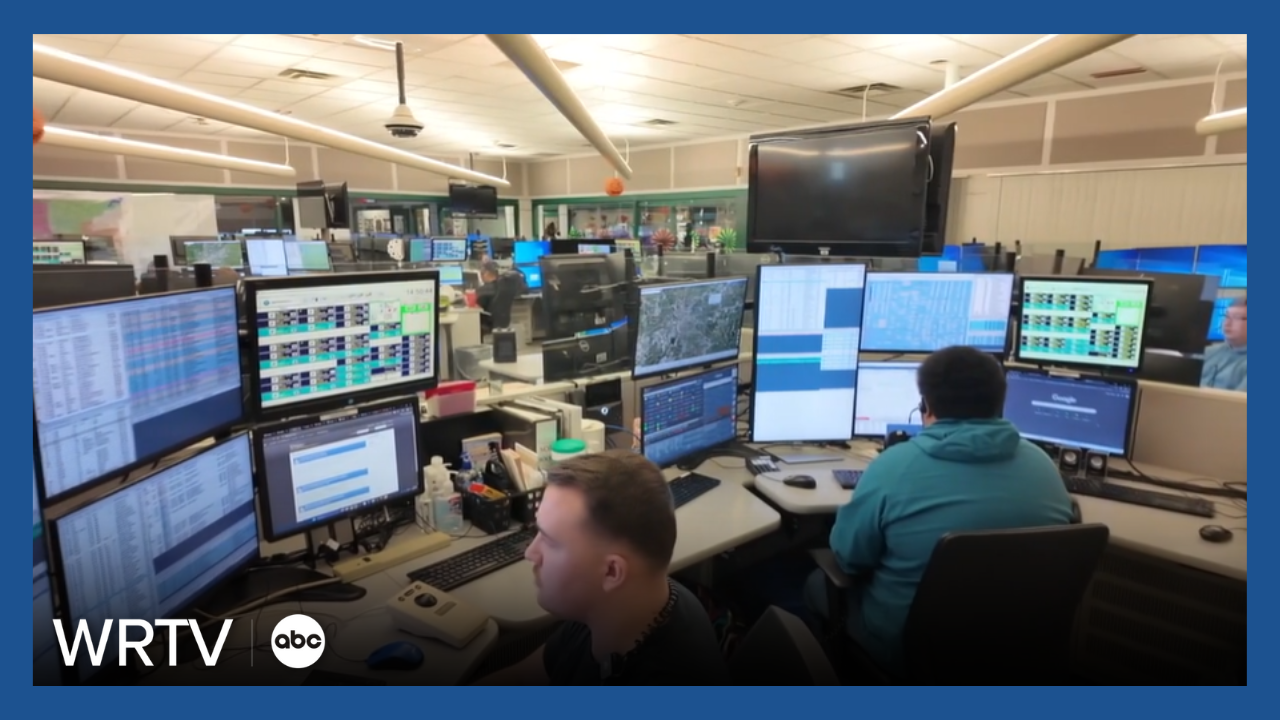INDIANAPOLIS — The first line of the coordinated effort between IMPD and dispatch starts at the 911 call center. Each district has its own control operator in charge of making sure officers have the resources they need.
"We play a vital role in the response for sure," said Jake Hillyer, MESA control operator.
Jake is a voice on the radio who assigns officers to scenes. Through headphones, he monitors the situation.
"When an officer is in a situation where they have to scream for help, the others may not know their location or whatever the case may be, that's when we come in and able to provide that location immediately," he said.
When there are large scenes, critical incidents or multiple police runs around the same time, back-up is called to cover police beats.
"It is my responsibility when I am working a district and that district runs out of cars and we have no officers and say, 'Hey, we need some officers, are there two or three of you that are able to start for this domestic or run?' It also comes on asking other agencies to assist, like Speedway, and they are always willing to help," said Hillyer.
Weekend violence left more than a dozen people shot. Officers were being pulled from multiple districts to help as IMPD dealt with a pursuit and multiple shooting scenes.
Southwest district late shift field supervisor Sgt. Christopher Higgins said the Event Response Group was called out.
"This weekend, with northwest having a few incidents on it, southwest district was called to assist with additional officers as well as our ERG. So, we had ERG downtown already, so we used squads from our downtown ERG sector to go and assist northwest district," said Sgt. Higgins.
Sgt Higgins said supervisors make the call to pull or send.
"As a southwest sergeant myself, I know that I have this many bodies that I can send to another agency or another district to support, but yet still be able to maintain my response time, maintain the community engagement that I need to maintain," he said.
It's an option that's available 24/7 to make sure when somebody calls 911, officers are there.
"That's our first priority as an agency is to respond to those in need and protect our citizens. So, as we're doing that, as we're taking those calls as supervisors, we have to understand when we're being taken away from for like a critical incident. We may have multiple officers on that. We may need support from additional districts, so we'll contact the other districts, see what their manpower or their staffing looks like, and we'll have them respond or send additional officers over to make sure that we are fully staffed at that time," said Sgt. Higgins.
Regardless of how busy officers get, they want to emphasize that if called upon, backup is coming, whether that's a drone or a presence.
"Our agency has six districts, but we are one Indianapolis Metropolitan Police Department, and our chief has enabled us and encourages us to call on each other for additional help and additional support," said Sgt. Higgins.
"If I need East District response, I know that they're coming. If I need Southeast to respond because they have a specialty unit, whether that be their drone or something along those lines, I know someone is coming," he added.
It all comes down to working together during stressful situations for the public.
Hillyer said, "We are trained to deal with that, especially after being here for several years and dealing with so many critical incidents. We learn to prioritize what we are doing. It can be overwhelming at times, but it's part of what we do. It's just about prioritizing and getting people help when they need it."






